
The 8th album from Gato Libre with compositions from trumpeter Natsuki Tamura in a trio with Yasuko Kaneko on trombone and pianist Satoko Fujii here on accordion, Koneko translating to "Kitten", as Tamura explores 8 new cats from strays to shop cats through deceptively simple pieces of melodic appeal of warm color, tone & texture; absolutely charming.
In Stock
Quantity in Basket: None
Log In to use our Wish List
Shipping Weight: 3.00 units
EU & UK Customers:
Discogs.com can handle your VAT payments
So please order through Discogs
Sample The Album:
Satoko Fujii-accordion
Natsuki Tamura-trumpet, composer
Yasuko Kaneko-trombone
Click an artist name above to see in-stock items for that artist.
UPC: 4562162308609
Label: Libra
Catalog ID: 103-060
Squidco Product Code: 29572
Format: CD
Condition: New
Released: 2020
Country: Japan
Packaging: Cardboard Gatefold
Recorded at UEN Studio, in Tokyo, Japan, on December 5th, 2019, by Tatsuya Yoshida.
"Koneko, the latest release by Gato Libre, draws listeners in with its lyricism and simple melodies. But it is a deceptive simplicity. The trio, led by trumpeter-composer Natuski Tamura and featuring Satoko Fujii on accordion and trombonist Yasuko Kaneko, develop their solos to sustain a meditative atmosphere as they play, blending improvisation and composition into an integrated whole. It all sounds effortless and relaxed, but it is the product of great musical discipline, close listening, and a sophisticated understanding of form. The group's eighth album is a quiet masterpiece of virtuosity masquerading as folk-like simplicity.
There is a lot of sonic variety and musical detail in the meditative unfolding of the performances. Tempos may be slow, but there is always something interesting happening. On "Yameneko," the accordion and brass split the melody, providing contrast. The stately flow of improvisations start to unfold over Fujii's accordion drone, with trumpet and trombone working individually and together. A trumpet-accordion duet features some of Tamura's best soloing on the album as Fujii creates a shimmering background punctuated by chords. A trombone-accordion duet provides a delicate setting for the graceful legato phrasing and subtle inflections of Kaneko's trombone. "Kaineko" opens with a poignant melody and evolves into some of the most turbulent music on the disc before settling back into the original wistful theme. The group's deep understanding of Tamura's intentions makes it all cohere into a balanced whole. Each piece reveals new sounds and feelings as it progresses, from the intimate, tender exchange of musical ideas between Tamura and Fujii on "Doreneko" to the contrasting tones and textures of Tamura and Kaneko on "Noraneko" to the rhythmic tensions that propel "Ieneko."-Libra
"A combo that begin life as a trumpet/accordion/bass/guitar quartet continues life as a trumpet/accordion/trombone trio, and thrives on the changes foisted on them by tragedy. Koneko, out July 10, 2020 from Libra Records, marks a bit of what has to be some welcome stability for the quiet combo headed by trumpeter Natsuki Tamura and featuring his composer/pianist wife Satoko Fujii on accordion. Yasuko Kaneko is the trombonist originally brought on to replace original bassist Norikatsu Koreyasu, who passed in 2011. The group was reduced to a trio when it was decided that nylon string guitarist Kazuhiko Tsumura would not be replaced after he died in 2015.
Koneko is the first album in some time where the personnel is the same as the prior Gato Libre album. The previous time out Neko was that first Gato Libre release as a threesome, and it was very surprisingly resilient in how this configuration stayed true to the original mission even after two instruments and personalities were exchanged for one different instrument and personality. It's a testament to Tamura's vision for the band. You see, Gato Libre is not really jazz, not even the avant-garde variety that Tamura and Fujii do better than just about anybody, currently. It's folk music, folk music that has no boundaries.
That doesn't change at all for Koneko. The familiar solitude of Tamura's horn opens "Kaineko," a solemnness that continues even as Koneko and Fujii gently nudge their way in. Even in an understated manner Fujii plays the accordion like no other, it's in the small ways she harmonizes her notes and holds them. She also is tasked with taking the song to the next pattern and Tamura completes the sonic painting one puff at a time. When Koneko re-enters, it soon devolves into something just short of chaos, but then the three collect themselves and find themselves where they started.
As is so often the case with a Tamura/Fujii project, they mind little details that set them apart from anyone else. For instance, you rarely hear all three of them play at once. More often, songs are arranged as series of duos and solos and where each instrument is deployed at certain points of the song is critical to the character of the song, as is how that instrument is played. On "Noraneko," Fujii's 'saws' her accordion like an arco bass or cello, virtually assuming that role. As she moves into the spotlight, she makes that instrument breathe, injecting soul into her featured moment.
"Yamaneko" contains a series of calls and responses, first between the brass and Fujii and then between the two brass players. Each section - including the solos - comes with its own motif, too. Tamura and Fujii harmonize on "Ieneko" as Koneko blurts low notes that serve as a sort of bass pattern.
The delicate dance between the horn players make for some of the most poignant moments of the album. On "Noraneko," Tamura and Kaneko engage in simultaneous expression that's affective and fragile, while on "Yamaneko" they gently reach out to the listener in tandem.
Tamura is inclined to go for emotionally alluring over technically dazzling but his solo turn during "Koneko" is both of those things. On "Kanbanneko," it's the first thing and then the second thing, ending with a return back to the first. Regardless, his bag of tricks is deep and is never at a loss for something unique to say on the trumpet.
Things take a caustic turn on "Bakeneko," a taste of the Tamura/Fujii cheekiness that's found way on up to the orchestra level. Even here, there's a generous utilization of space and silence that keeps this track from being out of place on the overall album.
Music that relaxes doesn't necessarily have to be devoid of subtlety and rich complexities. Gato Libre has proven that time and again, and Koneko makes it an open-and-shut case."-S. Victor Aaron, Something Else Reviews
Artist Biographies
• Show Bio for Satoko Fujii "Born on October 9, 1958 in Tokyo, Japan, Fujii began playing piano at four and received classical training until twenty, when she turned to jazz. From 1985-87, she studied at Boston's Berklee College of Music, where her teachers included Herb Pomeroy and Bill Pierce. She returned to Japan for six years before returning to the US to study at the New England Conservatory in Boston, where her teachers included George Russell, Cecil McBee, and Paul Bley, who appeared on her debut CD Something About Water (Libra, 1996). Since then Fujii has been an innovative bandleader and soloist, a tireless seeker of new sounds, and a prolific recording artist in ensembles ranging from duos to big bands. She has showcased her astonishing range and ability approximately 80 CDs as leader or co-leader. With each new recording or new band, she explores new aspects of her art. Regular collaborations include her New York trio with bassist Mark Dresser and drummer Jim Black, augmented by trumpeter/husband Natsuki Tamura to form the Satoki Fujii Four; her duo with Tamura; the Satoko Fujii Quartet featuring Tatsuya Yoshida of the Japanese avant-rock duo, The Ruins; Orchestra New York, which boasts the cream of New York's contemporary avant garde improvisers, including saxophonists Ellery Eskelin and Tony Malaby, trumpeters Herb Roberton and Steven Bernstein, and trombonist Curtis Hasselbring, among others; Orchestra Tokyo, drawing on that city's best improvisers; Orchestra Nagoya; Orchestra Kobe; the co-operative trio Junk Box with Tamura and percussionist John Hollenbeck; ma-do, a quartet including Tamura on trumpet, bassist Norikatsu Koreyasu, and Akira Horikoshi; the Min-Yoh Ensemble with Tamura, trombonist Hasselbring, and accordionist Andrea Parkins; the Satoko Fujii New Trio, featuring bassist Todd Nicholson and drummer Takashi Itani― plus countless engagements and collaborations with some of the world's most important improvisers." ^ Hide Bio for Satoko Fujii • Show Bio for Natsuki Tamura "Japanese trumpeter and composer Natsuki Tamura is internationally recognized for a unique musical vocabulary that blends extended techniques with jazz lyricism. This unpredictable virtuoso's seemingly limitless creativity led François Couture in All Music Guide to declare that "... we can officially say there are two Natsuki Tamuras: The one playing angular jazz-rock or ferocious free improv... and the one writing simple melodies of stunning beauty... How the two of them live in the same body and breathe through the same trumpet might remain a mystery." Born on July 26, 1951, in Otsu, Shiga, Japan, Tamura first picked up the trumpet while performing in his junior high brass band. He began his professional music career after he graduated from high school, playing in numerous bands including the World Sharps Orchestra, Consolation, Skyliners Orchestra, New Herd Orchestra, Music Magic Orchestra, and the Satoko Fujii Ensemble, as well as in his own ensemble. He was the trumpeter for numerous national television shows in Japan from 1973-1982, including The Best Ten, Music Fair, Kirameku Rhythm and many others. In 1986, he came to the United States to study at Berklee College of Music. He then returned to his native Japan to perform and teach at the Yamaha Popular Music School and at private trumpet studios in Tokyo and Saitama, before coming back to the US to study at New England Conservatory. He made his debut recording as a leader in 1992 on Tobifudo. In 1997 he released the duo album How Many? with pianist Satoko Fujii, who is also his wife. It marked the beginning of an artistic collaboration that continues up to the present. The duo has made a total of five CDs over the years, including 2012's Muku. "Muku contains some truly stunning, spine-tingling music...its sheer beauty and elegance is what lingers most," wrote Dave Wayne in All About Jazz. "Fujii's orchestral technique, clear chromatic lines and "prepared piano" devices contrast effectively with Tamura's arsenal of extended techniques which he executes with a warm, vocalized tone throughout the trumpet's full range," Ted Panken said in his four-star DownBeat review. Tamura's collaborations with Fujii reveal an intense musical empathy, and have garnered wide popular and critical acclaim. Jim Santella in All About Jazz described their synergy well in his glowing review of the couple's 2006 Not Two disc, In Krakow, In November: "... the creative couple forcefully demonstrates what can happen when you let your musical ideas run free... Similarly, Tamura's mournful trumpet can fly high or low in search of his next surprise. Oftentimes, they both issue plaintive moans that sing like angels on high." Their sixth duet album is due out in 2017. In 1998, Tamura began recording his unaccompanied solo performances. The stunning solo trumpet debut release, A Song for Jyaki earned a Writers Choice 1998 in Coda magazine, and Andy Bartlett wrote in Coda, "A fabulous set of hiccuping leaps, drones and post-bop trumpet hi-jinx. Tamura goes from growling lows to fluid, free solo runs and echoes not only Don Cherry's slurring anti-virtuosic chops but also Kenny Wheeler's piercing highwire fullness." He followed it up in 2003 with KoKoKoKe, which Jon Davis described in Exposé as "Buddhist chants from an alien planet." Grego Applegate Edwards explains that on Tamura's most recent solo album, 2013's Dragon Nat, "he pares down to focus on simple unwinding melodic material, the sound of his trumpet as a sensuous thing, a periodicity. Taken as a whole it is a kind of environmental tone poem for the moment Natsuki is in now." 2003 was a breakout year for Tamura as a bandleader, with the release of Hada Hada, featuring his free jazz-avant rock quartet with Fujii on synthesizer. Peter Marsh of the BBC had this to say about the high voltage CD: "Imagine Don Cherry woke up one morning, found he'd joined an avant goth-rock band and was booked to score an Italian horror movie. It might be an unlikely scenario, but it goes some way to describing this magnificent sprawl of a record." The quartet's 2004 Quartet release Exit was deemed "...a brilliantly executed set with a neon glow," by Dan McClenaghan in All About Jazz. In 2005, Tamura made a 180-degree turn in his music with the debut of his all acoustic Gato Libre quartet. Focusing on the intersection of European folk music and sound abstraction, the quartet featured Fujii on accordion, Kazuhiko Tsumura on guitar, and Norikatsu Koreyasu on bass. The quartet's poetic, quietly surreal performances have been praised for their "surprisingly soft and lyrical beauty that at times borders on flat-out impressionism," by Rick Anderson in CD Hotlist. Dan McClenaghan in All About Jazz described their fourth CD, Shiro, as "intimate, something true to the simple beauty of the folk tradition...Tamura's career has largely been about dissolving musical boundaries. With Gato Libre and Shiro, the trumpeter extends his reach even deeper into the prettiest, most accessible of his endeavors." After the unexpected passing of Norikatsu in 2012, Tamura added trombonist Yasuko Kaneko to the group. The new configuration has toured Europe and Japan and released its debut recording, DuDu, in 2014. "DuDu follows the winning formula of its predecessors but, as with the other discs, eschews the formulaic. The result is another sublimely satisfying, elegant record that brims with raw excitement and a reflective nostalgia," writes Hrayr Attarian in All About Jazz. With the tragic death of guitarist Kazuhiko Tsumura, Gato Libre is now a trio. They will release a CD and LP in 2017. In 2010, Tamura debuted a new electric quartet, First Meeting, featuring Fujii, drummer Tatsuhisa Yamamoto and electric guitarist Kelly Churko. Their first release, Cut the Rope, is "is a noisy, free, impatient album, and ranks among Fujii and Tamura's most accomplished," according to Steve Greenlee in the Boston Globe. While fronting groups and recording as a leader, Tamura has also played an integral role in nearly all of Satoko Fujii's many projects. He is featured on all of the CDs by Satoko Fujii's various orchestras (NY, Tokyo, Nagoya, Kobe, and Berlin) and has contributed original compositions and arrangements to each of their 19 critically celebrated albums. In addition, he was a featured soloist in the Satoko Fujii Quartet, her avant-rock free jazz group that also included Tatsuya Yoshida of The Ruins. Of his work on the quartet's 2003 release Minerva, Mark Keresman wrote in JazzReview.com, "Natsuki Tamura's trumpet has some of the stark, melancholy lyricism of Miles, the bristling rage of late 60s Freddie Hubbard and a dollop of the extended techniques of Wadada Leo Smith and Lester Bowie." Tamura is a vital member of Fujii's Min-Yo Ensemble as well. "Tamura tempers his avant-garde antics with an innate lyricism," wrote Steve Smith of Time Out New York in his review of Fujin Raijin, the intimate acoustic quartet's debut CD. He's also been singled out for his contributions to Fujii's ma do ensemble. "With Tamura's brash and glowing lines, the band incorporates mesmeric ostinatos and thrusting opuses into the grand schema," Glenn Astarita wrote in Ejazznews about their first CD, Desert Ship. Collaborative groups also play an important role in Tamura's career. Most recently, Tamura joined Fujii and two French musicians, trumpeter Christian Pruvost and drummer Peter Orins, to form Kaze, which made their recording debut in 2011. In 2015, they released their third album, Uminari, which Jazz Magazine (France) called, "a compelling example of free jazz today. Compositions are perfectly scripted, with a well-oiled interaction and playing of beautiful power..." The collaborative trio Junk Box, which he co-founded in 2006 along with pianist Fujii and drummer John Hollenbeck, plays Fujii's "composed improvisations," graphic scores that take "ensemble dynamics to great creative heights," says Kevin Le Gendre in Jazzwise. Their music "is full of bluster and agitation that nonetheless retains moments of great melodic beauty, usually by way of concise, pertly pretty motifs that trumpeter Tamura plays in between bursts of withering roars that often dissolve into austere overtones." Their premiere CD, Fragment, appeared in 2006. As Daniel Spicer wrote of Fragment in JazzWise, "Tamura spits out gloriously rude Lester-Bowie-like snorts, lows like a herd of robotic cattle or makes like a wheezy howler monkey... Cool and clever." Glenn Astarita of All About Jazz declared it "Required listening." Along the way, there have been one-off cooperative groups and sideman appearances for Tamura as well. In the Tank, an ad hoc quartet with Fujii and electric guitarists Takayuki Kato and Elliott Sharp, is a "triumphant electro-acoustic adventure" according to Daniel Spicer of Jazzwise. "Think AMM meets blues guitar meets 1970s Miles Davis and you get some idea of the disc's flavor: a slow-moving panorama for the ears, where sounds are systematically added, repeated, refined, and replaced in turn," wrote Nate Dorward in Cadence. Tamura and Fujii were one of two piano/trumpet duos featured on the Double Duo Crossword Puzzle CD, a live recording with Dutch trumpeter Angelo Verploegen and pianist Misha Mengelberg. Tamura has also toured and recorded with saxophonist Larry Ochs' Sax and Drumming Core, and appeared on albums by drummer Jimmy Weinstein, saxophonist Raymond McDonald, and CDs by Japanese free-jazz pioneers trumpeter Itaru Oki and pianist Masahiko Sato. In 2014 he released Nax, a duet album with bassist Alexander Frangenheim. Tamua has toured throughout Japan, North America, and Europe, appearing at major jazz festivals, concert halls, and clubs." ^ Hide Bio for Natsuki Tamura • Show Bio for Yasuko Kaneko "Yasuko Kaneko is a Japanese trombonist and composer. She was born in 1965 in Chiba, Japan. She began with the french horn in her school days, but felt that the trombone was a better instrument for her self-expression. Consequently she studied classical trombone under Yuri Iguchi, and jazz trombone under Shigeharu Mukai. In 1992 Kaneko began playing in big-bands, and by 1998 she was playing in small jazz combos and formed her own band. In 2012 Kaneko joined Gato Libre, the acoustic band from Japanese trumpeter Natsuki Tamura. Kaneko has also performed in Satoko Fujii's orchestra (Kobe). She has played with Danish saxophonist Lotte Anker, Japanese vocalist Koichi Makigami and more. Now she performs improvised music, jazz, contemporary music, and beyond. Kaneko also runs improvisation workshops." ^ Hide Bio for Yasuko Kaneko
7/1/2025
Have a better biography or biography source? Please Contact Us so that we can update this biography.
7/1/2025
Have a better biography or biography source? Please Contact Us so that we can update this biography.
7/1/2025
Have a better biography or biography source? Please Contact Us so that we can update this biography.
Track Listing:
1. Kaineko 6:51
2. Noraneko 8:37
3. Yamaneko 7:18
4. Koneko 7:18
5. Ieneko 5:34
6. Bakeneko 5:15
7. Doraneko 6:41
8. Kanbanneko 3:39
Improvised Music
Jazz
Free Improvisation
Melodic and Lyrical Jazz
Trio Recordings
Asian Improvisation & Jazz
Satoko Fujii & Natsuki Tamura's Libra Label
Jazz & Improvisation Based on Compositions
Last Copy of Items that will not be restocked...
Search for other titles on the label:
Libra.


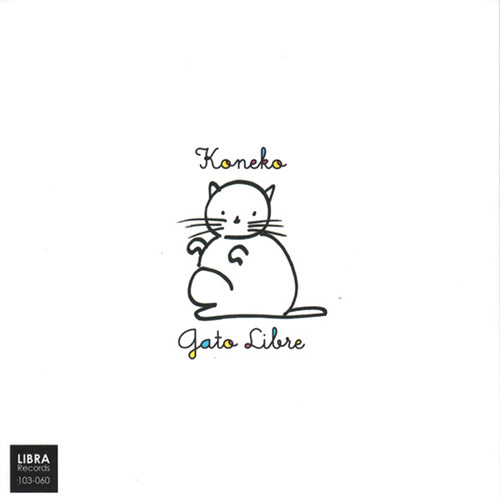







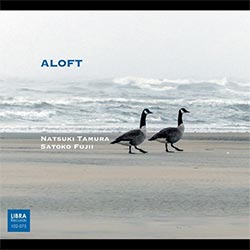
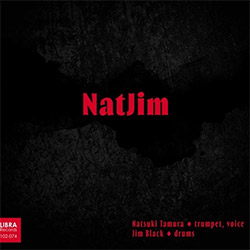










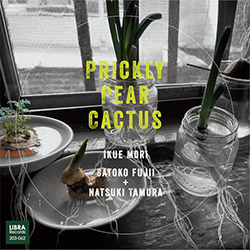


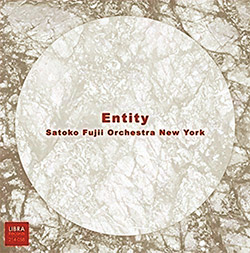












![Deupree, Jerome / Sylvie Courvoisier / Lester St. Louis / Joe Morris: Canyon [2 CDs]](https://www.teuthida.com/productImages/misc4/36404.jpg)


![Eternities: Rides Again [CASSETTE]](https://www.teuthida.com/productImages/misc4/36247.jpg)

![Lopez, Francisco: Untitled (2021-2022) [2 CDs]](https://www.teuthida.com/productImages/misc4/36438.jpg)




![Eventless Plot | Haarvol: The Subliminal Paths [CASSETTE + DOWNLOAD]](https://www.teuthida.com/productImages/misc4/36232.jpg)












![Eventless Plot | Francesco Covarino: Methexis [CASSETTE + DOWNLOAD]](https://www.teuthida.com/productImages/misc4/36231.jpg)



![Das B (Mazen Kerbaj / Mike Majkowski / Magda Mayas / Tony Buck): Love [VINYL]](https://www.teuthida.com/productImages/misc4/36329.jpg)



![Hemphill Stringtet, The: Plays the Music of Julius Hemphill [VINYL]](https://www.teuthida.com/productImages/misc4/36409.jpg)



![Halvorson, Mary Septet: Illusionary Sea [2 LPS]](https://www.teuthida.com/productImages/misc4/17952.jpg)






![Money : Money 2 [2 CDs]](https://www.teuthida.com/productImages/misc4/35894.jpg)




![Klinga, Erik: Elusive Shimmer [VINYL]](https://www.teuthida.com/productImages/misc4/36258.jpg)
![CHANGES TO blind (Phil Zampino): Volume 9 - I Wave on a Fine Vile Mist [CD + DOWNLOAD]](https://www.teuthida.com/productImages/misc4/36061.jpg)

![Wallmart / Rubbish: Asset Protection [split CD]](https://www.teuthida.com/productImages/misc4/35900.jpg)


![+Dog+: The Family Music Book Vol. 5 [2 CDs]](https://www.teuthida.com/productImages/misc4/35897.jpg)
![Kuvveti, Deli : Kuslar Soyledi [CASSETTE w/ DOWNLOAD]](https://www.teuthida.com/productImages/misc4/36107.jpg)

![Nakayama, Tetsuya: Edo Wan [CASSETTE w/ DOWNLOAD]](https://www.teuthida.com/productImages/misc4/36105.jpg)




![Yiyuan, Liang / Li Daiguo: Sonic Talismans [VINYL]](https://www.teuthida.com/productImages/misc4/35957.jpg)
![Brown, Dan / Dan Reynolds: Live At The Grange Hall [unauthorized][CASSETTE]](https://www.teuthida.com/productImages/misc4/36245.jpg)








![Palestine, Charlemagne / Seppe Gebruers: Beyondddddd The Notessssss [VINYL]](https://www.teuthida.com/productImages/misc4/36206.jpg)
![Palestine, Charlemagne / Seppe Gebruers: Beyondddddd The Notessssss [NEON GREEN VINYL]](https://www.teuthida.com/productImages/misc4/36207.jpg)

![Laubrock, Ingrid: Purposing The Air [2 CDs]](https://www.teuthida.com/productImages/misc4/35639.jpg)

![Yoko, Ono / The Great Learning Orchestra: Selected Recordings From Grapefruit [2 CDs]](https://www.teuthida.com/productImages/misc4/35841.jpg)









![Zorn, John / JACK Quartet: The Complete String Quartets [2 CDs]](https://www.teuthida.com/productImages/misc4/35609.jpg)
![Lonsdale, Eden: Dawnings [2 CDs]](https://www.teuthida.com/productImages/misc4/35480.jpg)



![Sorry For Laughing (G. Whitlow / M. Bates / Dave-Id / E. Ka-Spel): Rain Flowers [2 CDS]](https://www.teuthida.com/productImages/misc4/35985.jpg)

![Rolando, Tommaso / Andy Moor : Biscotti [CASSETTE w/ DOWNLOADS]](https://www.teuthida.com/productImages/misc4/36106.jpg)


![Electric Bird Noise / Derek Roddy: 8-10-22 [CD EP]](https://www.teuthida.com/productImages/misc4/35970.jpg)







![Elephant9 : Mythical River [VINYL]](https://www.teuthida.com/productImages/misc4/34624.jpg)



![Elephant9 with Terje Rypdal: Catching Fire [VINYL 2 LPs]](https://www.teuthida.com/productImages/misc4/35355.jpg)
![Deerlady (Obomsawin, Mali / Magdalena Abrego): Greatest Hits [VINYL]](https://www.teuthida.com/productImages/misc4/34876.jpg)







![Surplus 1980: Illusion of Consistency [CD]](https://www.teuthida.com/productImages/misc4/35069.jpg)
![Staiano, Moe: Away Towards the Light [VINYL + DOWNLOAD]](https://www.teuthida.com/productImages/misc4/35037.jpg)
![Coley, Byron: Dating Tips for Touring Bands [VINYL]](https://www.teuthida.com/productImages/misc4/17906.jpg)

![Lost Kisses: My Life is Sad & Funny [DVD]](https://www.teuthida.com/productImages/misc4/lostKissesDVD.jpg)